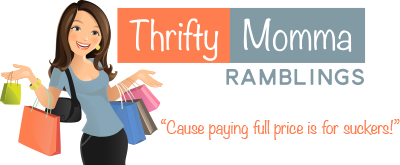The Cheapest Way to Buy a House: 6 Creative Methods

There are a lot of benefits to renting a home. For example, repairs and upkeep are the responsibility of the landlord. There’s no commitment to staying in one place for too long. There are also no property taxes or homeowner’s insurance to pay unless you get renter’s insurance, which is pretty inexpensive.
But, the cost of renting a home has been on the rise, while the cost of buying a home has leveled off. In fact, it’s a buyer’s market, and purchasing a home is easier than ever.
The thought of investing in a house may seem overwhelming, especially if you don’t have a ton of money saved up for a down payment or if your credit isn’t stellar.
So what is the cheapest way to buy a house? Read on to learn about 6 creative methods and you’ll be on your way to becoming a homeowner.
1. Find a Foreclosure
A foreclosed home is one that has been taken back by the bank because the homeowner stopped paying the mortgage.
More often than not, the previous owner lived in the property until they were kicked out. Also, if they couldn’t afford the mortgage payments, they couldn’t afford repairs either. This means that the home may be neglected.
In addition, many foreclosed homes are sold “as-is”. That means that in addition to needing repairs, they’re left in a terrible state. That’s not always true, but it can be. They are often stripped of all appliances, light fixtures, window coverings, and anything else that’s removable.
That said, foreclosed homes can be one of the cheapest ways to buy a house. The bank just wants their money back, and soon. They’re often willing to sell the home way below market value.
One thing to keep in mind is that if a foreclosed home is in a desirable neighborhood, it might get a lot of bids. If you’re up for the competition, a foreclosed home can be a good choice.
2. Settle on a Short Sale
A lot of people get confused about the difference between a short sale and a foreclosure. They both are homes owned by the bank due to the homeowner’s inability to pay the mortgage.
The difference is that with a short sale, the homeowner was responsible by letting the bank know of their financial circumstances.
The term “short” can be deceiving. Homes that are sold with a short sale often take a long time. The way it works is that you, the buyer, make an offer on the house, which is not always what is still owed. This is why it’s one of the cheapest ways to buy a house.
However, it’s up to the bank to accept this offer. Sure, they’re better off getting some of their money back than none. But banks often take a long time making this decision.
If you’re willing to wait, a short sale can be a great option.
3. Location, Location, Location
Prices of homes vary from location to location within a city. But many neighborhoods that seem less desirable might be the next up and coming locale.
One way to find out is to take a look at businesses that are starting up. If an area of town has a handful of new restaurants, shops, and bars, chances are, it’s a great place to buy. Jump in on a low-priced home before a neighborhood is gentrified.
Another option is to buy further out of town. As you go farther out of the hustle and bustle, home prices tend to drop. You can even get a bigger home for your money. Either way, taking a look at less than prime locations can be one of the cheapest ways to buy a house.
If you’re looking for a home in Florida, view here for some of the best home offers around.
4. Pay with Cash
If you have the money, buying a house with cash can often mean paying less. Some sellers are willing to drop the price if the buyer can pay outright, rather than getting a loan through the bank. You just have a lot more leverage and buying power if you can pay with cash in some situations.
Of course, that depends on the home and the seller, but anything that will give you a leg up when negotiating home prices is the way to go.
5. Consider a Duplex
You may pay more outright for a multi-family home, but buying a rental income property can help pay the mortgage.
In some cases, renting out half the house can pay all of your mortgage, taxes, and insurance, leaving you with a house you live in for free.
Now free isn’t really free. There’s a lot that goes into a rental property, including maintenance and upkeep of two homes and dealing with tenants. In addition, there’s the risk that the other half won’t always be rented. But if you’re up for the challenge of being a landlord, this can be one of the cheapest ways to buy a house.
6. Fixer-Upper Grants
There are a lot of options out there for people willing to buy a house in a developing neighborhood. Look around your city and you’re sure to see areas with historic homes that are falling to ruins with boarded-up windows. These dilapidated buildings are dollar signs for some people.
However, you have to be willing to fix the house up, live in it for a while, and keep it well maintained. If you’re not handy with a hammer, this option might not be for you. But if you are, buying a fixer-upper historic home in a “blighted area” is a great way to buy a cheap house.
Programs like the HUD Good Neighbor Program will allow eligible people to buy a house at a deep discount, as long as you live in the home for three years. They don’t want people who are just going to flip it. They’re creating neighborhoods.
The Cheapest Way to Buy a House
There’s no right answer when it comes to finding the cheapest way to buy a house. All of the above suggestions are options that can help you save some cash.
Many people believe that buying a home is out of their reach, but most of us can find a creative way to be homeowner rather than giving all your hard-earned cash to a landlord.
Owning a home is a big responsibility, but it’s also a great investment. If you take one or more of these options, you’ll be a having a housewarming party in no time.
Buying a new home doesn’t have to be a pipe dream. It can be a reality. Check out more great tips on personal finance.



